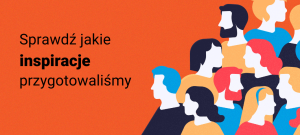Speaking topics
› A step towards singularity: connecting brain, body and machine in the name rehabilitation
› A “hands-on” approach to machine learning
Abstracts
After having suffered a devastating meningitis infection, which led to amputations on all four of his limbs, György Lévay dedicated his life to advancing the development of medical devices involved in rehabilitation and assistance in the everyday lives of those living with disabilities. His primary focus became the control of upper-limb prosthetics, the extreme limitations of which experienced first-hand after receiving his prosthetic arm. He began his journey in Hungary, where he studied robotics and control theory. He then applied for a Fulbright scholarship, which took him to the Johns Hopkins University. Here, he completed his master’s degree focusing on machine learning based methods to control upper limb prostheses. His research was and continues to be grounded in the belief that the more access and control users have over their prostheses, the more it will become a part of their bodies and lives. In this talk, György walks through his path in life with the listeners, showing how his personal experiences informed his professional decisions, and how an event that might seem devastating can lead to a new sense of purpose and fulfillment, while giving an easy to follow explanation of how machine learning can be used to translate our will to move into action.
Artificial Intelligence, or Machine Learning has infiltrated our everyday lives in just a few years. While we rely on this technology to predict if we’re taking photos of our cat or our lunch, to recognize our voice even if we have a sore throat, or to suggest the instagram feed that fits best to our personalities, we usually don’t think twice about what it takes for an algorithm rooted in basic mathematical principles to “get to know us” so well. In this talk participants will receive a more detailed explanation on how to teach a machine learning algorithm to recognize us on a personal level through an exciting biomedical application. György, a biomedical engineer and upper-limb amputee, specializes in advanced control systems for prosthetic devices and over the course of the talk he will explain how and why these algorithms work. Participants will be given an opportunity to witness how an AI application can take noisy electrical signals from the human body and convert then in to control signals for an upper-limb prosthesis.
Bio note
György Lévay suffered a devastating meningitis infection in 2010 which forced his doctors to amputate from both his arms and feet. After receiving his first upper-limb prosthesis a year later he realized that there was a significant difference between what these devices were said to be capable of, and what they were truly capable of. Already studying to be an engineer, he shifted his field of interest to the control systems of upper-limb prostheses, and after being awarded a Fulbright scholarship he completed his master’s in Biomedical Engineering at The Johns Hopkins University in the United States. There, he focused on pattern recognition, a machine learning method used for intuitive control of multi-articulated prosthetic limbs. Today, he works as the Research Manager of Infinite Biomedical Technologies LLC., a US based medical device company focused on the development of cutting edge upper-limb prosthetic technologies. He also is the founder of his own company in Hungary, focused on developing assistive and rehabilitative devices.



